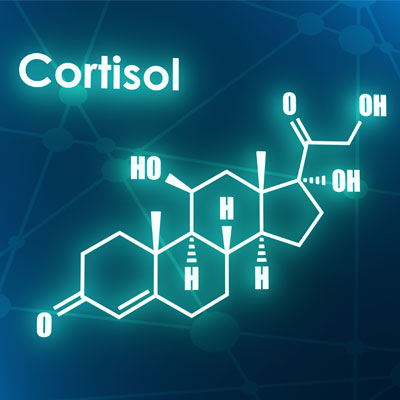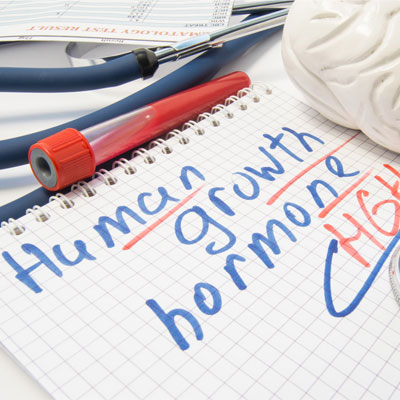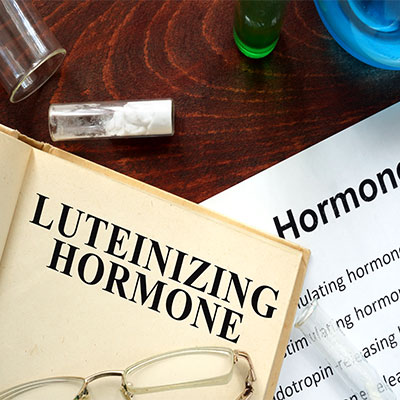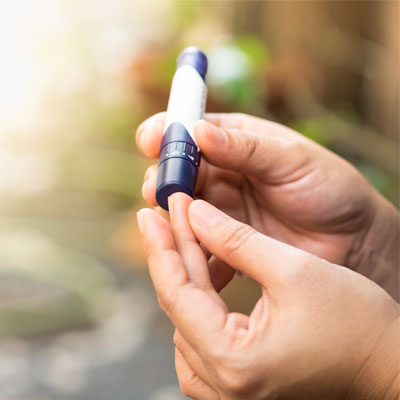Contents
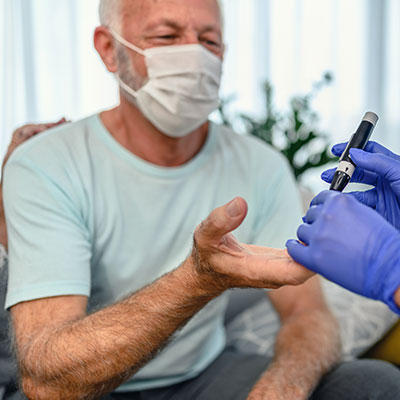
One of the symptoms of a growth hormone deficiency – particularly in children, can be low blood sugar or hypoglycemia. Normally one of the functions of HGH in the body is the regulation of glucose metabolism. In a normal healthy adult, HGH secretions are intended to prevent hypoglycemia. When all is functioning properly and your body is producing adequate supplies of growth hormone, growth hormone secreted by the pituitary gland enters the bloodstream to stimulate the liver to produce glucose.
The secretion of HGH increases after eating, and it plays a vital role in metabolizing the food you eat into energy for your cells. In addition to telling your liver to produce more glucose after a meal, HGH also stimulates the release of another hormone known as insulin growth factor 1 (IGF-1). Glucose is stored in the liver as glycogen. IGF-1 stimulates the liver to break down stored glycogen and release it into the bloodstream as glucose.
HGH is instrumental in raising the level of glucose in your blood as needed. Therefore, if you are HGH deficient for any reason, including age-related or adult-onset growth hormone deficiency, it could lead to low blood sugar.
Does HGH Cause Hypoglycemia?
HGH itself does not “cause” hypoglycemia; however, HGH is essential to how your body metabolizes sugars into energy (glycolysis) and how it burns fat (lipolysis). HGH also promotes ketone bodies (ketogenesis) that break down the fatty acids into the energy that the body can use.
In people with a growth hormone deficiency, any or all of these biological processes can be impaired, which can result in hypoglycemia.
Is Hypoglycemia the Same Thing as Diabetes?
Hypoglycemia is often confused with diabetes, but they are not the same thing. Hypoglycemia is a problem for people who have diabetes. It happens to people with diabetes when their blood sugar drops due to taking too much insulin or a mismatch of medicine, food, and/or exercise.
However, Hypoglycemia or “low blood sugar” can happen in people without diabetes, but that is a rare occurrence. People mistakenly think of hypoglycemia as a disease in and of itself. It is not. Hypoglycemia is an indication that something else is wrong within the body, causing your blood sugar to drop. It is most often a side-effect of the medications used to treat diabetes.
An episode of hypoglycemia may require immediate treatment. If your blood sugar level drops below a point indicative of hypoglycemia – usually blood sugar below 70 milligrams per deciliter (mg/dL) – treatment involves quickly getting your blood sugar back to normal either with high-sugar foods or drinks or with medications.
Long-term treatment for hypoglycemia requires identifying and treating the cause of the condition. The is evidence to suggest that a growth hormone deficiency can lead to hypoglycemia.
HGH and Diabetes
Diabetes, or the condition more accurately called diabetes mellitus, is not a single condition. It is a group of metabolic diseases characterized by high blood glucose levels (“high blood sugar”). In those individuals with diabetes, the elevated blood sugar is because their bodies are not making enough insulin, or their cells do not react appropriately to the presence of insulin.
There is a link between the presence of HGH in the level of glucose in your blood. Growth hormone is one of three hormones produced by your body that are designed to raise blood sugar levels. The other two are epinephrine and cortisol. In this way, HGH is instrumental in the whole process of sugar metabolism.
HGH is essential to turning the fats and sugars in the foods you eat into energy for your cells. People with low HGH have slower metabolisms, less lean muscle, and tend to be obese. In that way, people with growth hormone deficiencies are at greater risk of suffering from metabolic conditions such as diabetes.
Effects of Growth Hormone on Glucose and Insulin Resistance
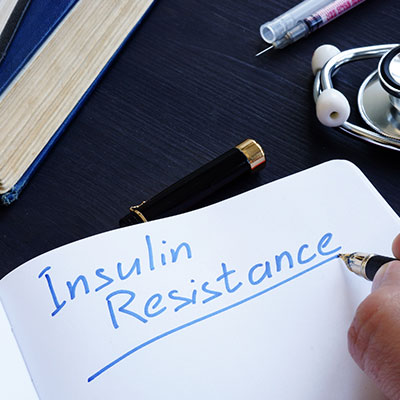
HGH does influence the level of glucose in your blood. However, it is important to note that this is not a “side effect” of growth hormone therapy, and it is actually one of its purposes in your body.
It is also important to point out that growth hormone injections do not “cause” diabetes. In fact, when taken correctly, since growth hormone can help you to build lean muscle and therefore increase your metabolism, it can actually help you lose weight, and therefore have the net effect of actually decreasing your risk of developing diabetes.
When properly monitored, most patients are at no greater risk of developing diabetes if they are taking growth hormone than if they were not. And as a 2009 study published in Trusted sourceGrowth hormone improves body composition, fasting blood glucose, glucose tolerance and liver triacylglycerol in a mouse model of diet-induced obesity and type 2 diabetesSpringer NatureGo to sourceDiabetologia showed, HGH may help lower insulin levels and improve glucose uptake in tissue cells, thereby lowering your risk of diabetes.
Studies On HGH and Hypoglycemia
A Trusted sourceEffects of growth hormone on glucose metabolism and insulin resistance in humanNCBIGo to source2017 study acknowledged that hypoglycemia often occurs in adults with growth hormone deficiency (GHD), stating, “The clinical presentations of GH-deficient adults are characterized by increased visceral adiposity, insulin resistance, dyslipidemia, and hyperglycemia, which contributes to increased risk of cardiovascular morbidity and mortality.”
This particular study went on to identify that the hypoglycemia and other “metabolic disturbances” present in adults with GHD could be related to low levels of IGF-1 that accompany growth hormone deficiency in adults. “Because IGF-1 has anti-inflammatory properties and is important for glucose uptake from peripheral tissues, metabolic disturbances in GH-deficient adults can be explained by the IGF-1 deficit.”
Now that you know more about HGH hypoglycemia and blood sugar, why not contact us today, and find out more about the many life-changing benefits of growth hormone therapy?
FAQ
What Is Hypoglycemia?
Hypoglycemia is a condition in which your blood sugar (glucose) level is lower than normal. Hypoglycemia is often confused with diabetes, but they are not the same thing. Hypoglycemia is a problem for people who have diabetes. It happens to people with diabetes when their blood sugar drops due to taking too much insulin or a mismatch of medicine, food, and/or exercise.
How Do I Know if I Have Hypoglycemia?
If your blood sugar levels become low enough to result in hypoglycemia, the signs and symptoms can include:
- An irregular or fast heartbeat
- Fatigue
- Pale skin
- Shakiness
- Anxiety
- Sweating
- Hunger
- Irritability
- Tingling or numbness of the lips, tongue, or cheek
As hypoglycemia worsens, signs and symptoms can include:
- Confusion, abnormal behavior, or both, such as the inability to complete routine tasks
- Visual disturbances, such as blurred vision
- Seizures
- Loss of consciousness
What Is the Link Between HGH and Diabetes?
Insulin-like growth factor-1(IGF-1) and HGH are intimately related. IGF-1 gets its secretion signals from the amount of HGH that reaches the liver. Human growth hormone and IGF-1 help to maintain proper levels of glucose and insulin in the blood.
Adults who are deficient in HGH and IGF-1 often have increased levels of cortisol, which often raises insulin and glucose levels, leading to diabetes or pre-diabetes.
Can HGH Therapy Treat Hypoglycemia?
Research studies looking at the effects of HGH on glucose metabolism have shown that HGH does indeed increase glucose production through increased gluconeogenesis and glycogenolysis from the liver and kidney. Therefore, HGH could be a possible treatment for hypoglycemia when it is properly prescribed for that purpose and used with appropriate medical supervision.



